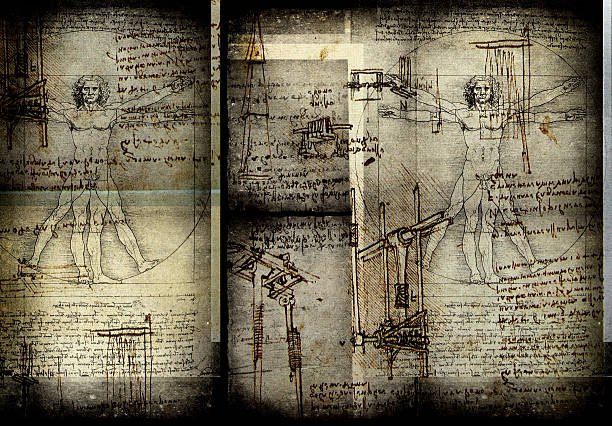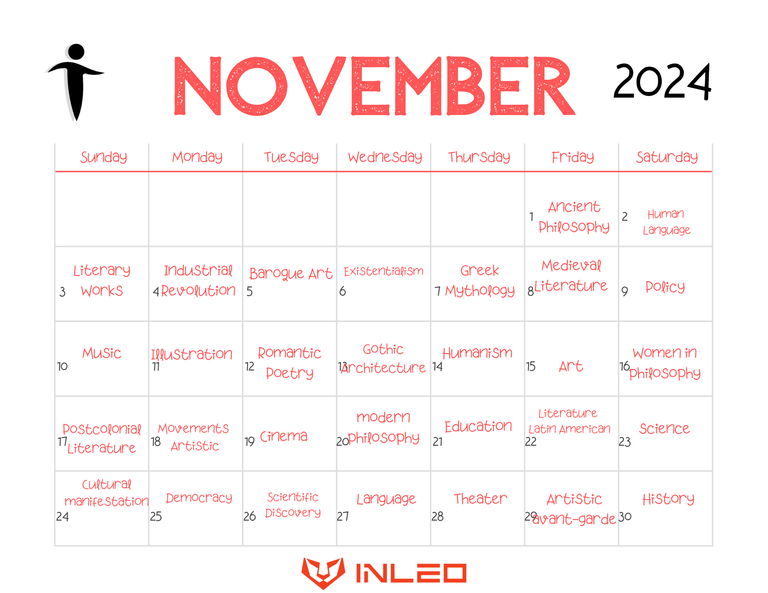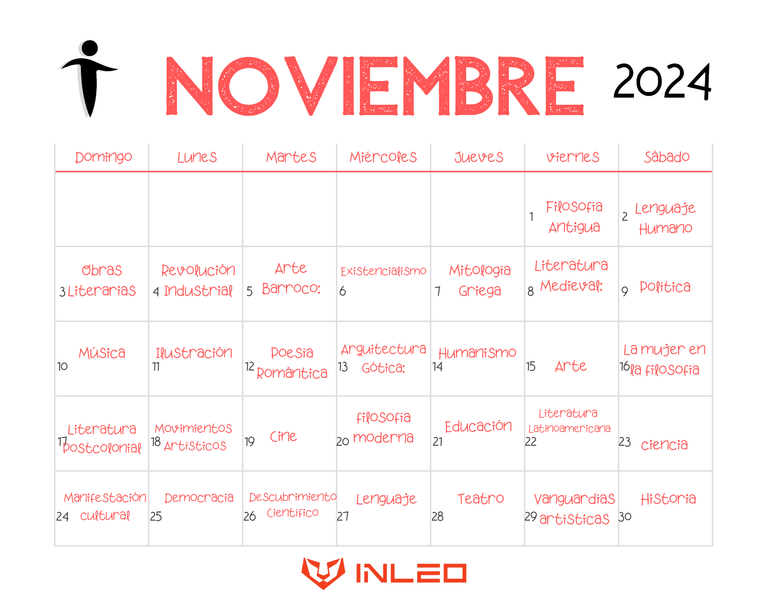Si prefieres la versión en español, haz clic en el siguiente enlace 👉 AQUÍ
ᖴᖇOᗰ SᕮᑕᖇᕮTS TO ᖇᕮᐯOᒪᑌTIOᑎS:
Thᥱ Trᥲᥒsformᥲtιvᥱ Imρᥲᥴt of Sᥴιᥱᥒtιfιᥴ Dιsᥴovᥱrყ oᥒ Lιfᥱ ᥲᥒd Thoᥙght
Since the fourth grade I have been interested in science, its findings and its history. Today, as a retired person, I reflect on how great discoveries have shaped not only our daily lives, but also our way of thinking and philosophising. The relationship between science and philosophy is complex and profound, and over the THROUGHOUT centuries, scientific advances have brought about significant changes in both spheres.
For centuries, many scientific discoveries were made in secret due to strong pressure from the Church. In the Middle Ages and the Renaissance, the power of the Catholic Church was immense, and any discovery that might contradict religious teachings or diminish its power was seen as a threat. Scientists such as Galileo Galilei and Giordano Bruno faced persecution and punishment for their innovative ideas that challenged the geocentric view of the universe promoted by the Church.
Galileo, with his telescope, not only revolutionised our understanding of the cosmos by observing the moons orbiting Jupiter, but also challenged ecclesiastical authority. These conflicts not only had an impact on science, but also influenced philosophical thinking, promoting a worldview based more on observation and empirical evidence than on religious authority. This paradigm shift from dogma to empirics laid the foundations for modern scientific thought and the Enlightenment.
Today, although the Church and religion still exert some pressure, their influence has diminished considerably compared to previous centuries. Scientific discoveries are no longer made in secret and the scientific community enjoys greater freedom to explore, research and communicate their findings. This development has enabled accelerated progress in many areas of knowledge, from biology and medicine to physics and technology.
The impact of these discoveries on our daily lives is undeniable. The technological revolution, for example, has transformed the way we live, work and communicate. Innovations in medicine have prolonged our lives and improved our quality of life. Scientific theories, such as Einstein's relativity or quantum mechanics, though complex, have inspired new philosophical approaches to the nature of reality and our place in the universe.

In the philosophical realm, scientific discoveries have forced us to rethink many of the fundamental questions about existence, knowledge and ethics. Darwin's theory of evolution, for example, not only revolutionised biology, but also had profound philosophical implications for our understanding of human beings and their place in the world. Contemporary neuroscience, by studying the human brain, raises new questions about the nature of consciousness and free will.
Although religion still plays a role in many people's lives, its influence on science and philosophy is diminishing. Society has moved towards a clearer separation between the religious and scientific spheres, allowing each to operate with their own methodologies and objectives. This does not mean that religion has ceased to be relevant, but its role has changed, leaving more room for science to flourish and continue to advance.
In short, great scientific discoveries have had a profound impact on both our daily lives and philosophical thinking. Throughout history, these advances have challenged established power structures and beliefs, promoting a more rational and empirical approach to knowledge. Although the influence of religion persists, today we live in an era where science has the freedom to explore and expand the boundaries of what is known, benefiting humanity in countless ways and continuing the legacy of the great thinkers of the past.
You are cordially invited to participate. A theme for each day. It is a proposal of the #humanitas Community. In the following links you will find all the necessary information. We are waiting for you… @silher, @chironga67, and @atreyuserver.
INITIATIVE: A theme for everч dαч (November 2024)

CREDITS:
Dedicɑted to ɑll those poets who contɾibute, dɑγ bγ dɑγ, to mɑke ouɾ plɑnet ɑ betteɾ woɾld.


ᗪᕮ SᕮᑕᖇᕮTOS ᗩ ᖇᕮᐯOᒪᑌᑕIOᑎᕮ:
Eᥣ Imρᥲᥴto Trᥲᥒsformᥲdor dᥱ ᥣos Dᥱsᥴᥙbrιmιᥱᥒtos Cιᥱᥒtίfιᥴos ᥱᥒ ᥣᥲ Vιdᥲ ყ ᥱᥣ Pᥱᥒsᥲmιᥱᥒto
Desde el Cuarto Grado comencé a interesarme por la ciencia, sus hallazgos y su historia. Hoy, en condición de jubilado, reflexiono sobre cómo los grandes descubrimientos han moldeado no solo nuestra vida cotidiana, sino también nuestra manera de pensar y filosofar. La relación entre ciencia y filosofía es compleja y profunda, y a lo largo de los siglos, los avances científicos han provocado cambios significativos en ambas esferas.
Durante siglos, muchos descubrimientos científicos se realizaron en secreto debido a la fuerte presión ejercida por la Iglesia. En la Edad Media y el Renacimiento, el poder de la Iglesia Católica era inmenso, y cualquier descubrimiento que pudiera contradecir las enseñanzas religiosas o disminuir su poder era visto como una amenaza. Científicos como Galileo Galilei y Giordano Bruno enfrentaron persecuciones y castigos por sus ideas innovadoras que desafiaban la visión geocéntrica del universo promovida por la Iglesia.

Galileo, con su telescopio, no solo revolucionó nuestra comprensión del cosmos al observar las lunas orbitando a Júpiter, sino que también desafió la autoridad eclesiástica. Estos conflictos no solo tuvieron un impacto en la ciencia, sino que también influyeron en el pensamiento filosófico, promoviendo una visión del mundo más basada en la observación y la evidencia empírica que en la autoridad religiosa. Este cambio de paradigma, del dogma a la empírica, sentando las bases para el pensamiento científico moderno y la Ilustración.
Hoy en día, aunque la Iglesia y la religión siguen ejerciendo cierta presión, su influencia ha disminuido considerablemente en comparación con siglos anteriores. Los descubrimientos científicos ya no se realizan en secreto y la comunidad científica goza de una mayor libertad para explorar, investigar y comunicar sus hallazgos. Esta evolución ha permitido un avance acelerado en numerosas áreas del conocimiento, desde la biología y la medicina hasta la física y la tecnología.
El impacto de estos descubrimientos en nuestra vida cotidiana es innegable. La revolución tecnológica, por ejemplo, se ha transformado la manera en que vivimos, trabajamos y nos comunicamos. Las innovaciones en la medicina han prolongado nuestras vidas y mejorado nuestra calidad de vida. Las teorías científicas, como la relatividad de Einstein o la mecánica cuántica, aunque complejas, han inspirado nuevos enfoques filosóficos sobre la naturaleza de la realidad y nuestro lugar en el universo.

En el ámbito filosófico, los descubrimientos científicos han obligado a replantear muchas de las preguntas fundamentales sobre la existencia, el conocimiento y la ética. La teoría de la evolución de Darwin, por ejemplo, no solo revolucionó la biología, sino que también tuvo profundas implicaciones filosóficas sobre nuestra comprensión del ser humano y su lugar en el mundo. La neurociencia contemporánea, al estudiar el cerebro humano, plantea nuevas cuestiones sobre la naturaleza de la conciencia y el libre albedrío.
A pesar de que la religión todavía tiene un papel en la vida de muchas personas, su influencia sobre la ciencia y la filosofía es cada vez menor. La sociedad ha avanzado hacia una separación más clara entre el ámbito religioso y el científico, permitiendo que cada uno opere con sus propias metodologías y objetivos. Esto no significa que la religión haya dejado de ser relevante, pero su papel ha cambiado, dejando más espacio para que la ciencia prospere y continúe su avance.
Resumiendo, los grandes descubrimientos científicos han tenido un impacto profundo tanto en nuestra vida cotidiana como en el pensamiento filosófico. A lo largo de la historia, estos avances han desafiado las estructuras de poder y las creencias establecidas, promoviendo un enfoque más racional y empírico del conocimiento. Aunque la influencia de la religión persiste, hoy en día vivimos en una era donde la ciencia tiene la libertad de explorar y expandir los límites de lo conocido, beneficiando a la humanidad de maneras innumerables y continuando el legado de los grandes pensadores del pasado.
Estás cordialmente invitado a participar. Un tema para cada día. Es una propuesta de la Comunidad #humanitas. En el siguiente enlaces encontrarás toda la información necesaria. Te esperamos… @cirangela, @felpach, y @lauril.
INICIATIVA: Un temα pαrα cαdα dı́α (Noviembre 2024)

Dedicɑdo ɑ todos ɑquellos que contɾibuγen, díɑ ɑ díɑ, ɑ hɑceɾ de nuestɾo plɑnetɑ, un mundo mejoɾ.


Dedicɑdo ɑ todos ɑquellos que contɾibuγen, díɑ ɑ díɑ, ɑ hɑceɾ de nuestɾo plɑnetɑ, un mundo mejoɾ.

